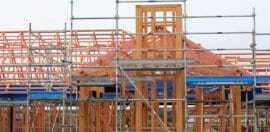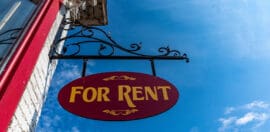Reconciliation Week is everybody’s business

27 May 2021 at 7:59 am
Organisations must think beyond cultural competence as a compliance exercise and more of a moral obligation, writes Haven Home Safe CEO Andrew Cairns, reflecting on the need to make the mainstream housing and homelessness system culturally safe.
Today marks the start of Reconciliation Week, but how far have we really come as a nation on our journey to reconciliation, and how will we really know when we get there?
The State of Reconciliation report reminds us that while we have made some progress in recent years, we still have a long way to go before First Peoples find themselves in a safe, equitable, equal, and fair environment filled with prospects and hope, self-determination, and empowerment.
During Reconciliation Week, Australians are being asked to raise the bar of expectation and act by moving from playing safe to acting brave to realise the promise of reconciliation. Only when all five dimensions of reconciliation: race relations, equality and equity, institutional integrity, unity, and historical acceptance have been achieved can we say we have reached reconciliation.
Progress may still be slow, but support for reconciliation has undoubtedly grown since the formal process began with the unanimous passing of the Council for Aboriginal Reconciliation Act 1991, with almost all Australians supporting formal truth-telling processes about our shared history.
Truth-telling is not just about acknowledging the atrocities of the past, but is also an opportunity for Aboriginal and Torres Strait Islander peoples to share their proud culture.
Reconciliation Action Plans have had a tangible, positive, and sustained effect on advancing reconciliation, but still more needs to be done. Reconciliation Australia has called on RAP organisations to speak up on some of the more challenging issues confronting First Nations communities such as colonisation, dispossession, genocide, the Stolen Generations, stolen wages, over policing, over incarceration, the removal of children, prevalent discrimination, and countless other human rights violations.
These are the difficult and uncomfortable conversations we need to lean into at home and in the workplace.
At Haven, we know a stable home is the foundation of a good life and that access to a fair and efficient homelessness and housing system is fundamental to reconciliation.
Historically, First Nations people have been over-represented among clients seeking homelessness and social housing services. Aboriginal and Torres Strait Islander people make up 3.1 per cent of the Australian population, yet they made up 27 per cent of the clients assisted by specialist homelessness services in 2019–20.
Victoria had the highest rate of Indigenous clients (1,679.6 per 10,000 Indigenous people). In recent years, one in five Aboriginal Victorians has sought assistance from a homelessness service. Almost half were already homeless. If the mainstream population sought help at the same rate, more than one million Victorians would be homeless.
Aboriginal Victorians also tell us that racism, actual and perceived discrimination by service providers, language and cultural barriers, and a lack of trust are the main barriers to accessing mainstream support services.
In response, the Aboriginal community developed Mana-na woorn-tyeen maar-takoort, the Victorian Aboriginal Housing and Homelessness Framework. This is its strength.
Mana-na woorn-tyeen maar-takoort, which translates to “every Aboriginal person has a home” in the Gunditjmara dialects, provides a 20-year agenda for homelessness in Victoria and aims to achieve quality housing outcomes in a generation.
One of the framework’s strategic actions is to make the mainstream housing and homelessness system culturally safe.
We acknowledge that we have a way to go on our organisational journey to ensure our public statements match our actions and everyday operations in the delivery of a culturally safe service.
We also recognise that cultural competence is not just being culturally aware or sensitive to other cultures. It’s about acquiring and embedding the knowledge, behaviours, attitudes, policies, and systems that enable us to work effectively in cross-cultural situations and respond to the needs of a culturally diverse population.
And in a modern, equitable and fair society, organisations should think beyond cultural competence as a compliance exercise and more of a moral obligation. It should be everybody’s business.







